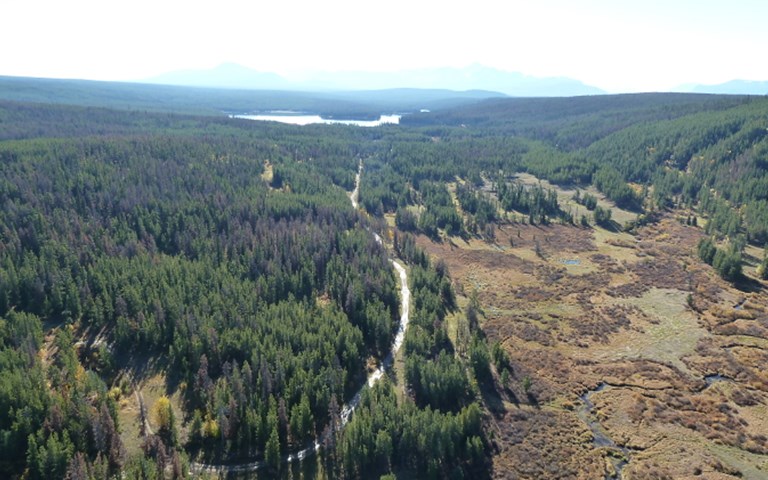A B.C. Supreme Court decision has cleared the way for Taseko to begin exploration work at New Prosperity. Courtesy of Taseko Mines
The Tsilhqot’in Nation’s petition to stop Taseko Mines from carrying out drilling work at its New Prosperity project, which is close to the Nation’s declared title land, was dismissed by the British Columbia Supreme Court on Friday.
The Tsilhqot’in are now calling on B.C.’s NDP government to cancel the exploration permit, which was granted in the B.C. Liberal government's final days.
“The proper steps would be to pull the pin on this permit,” said Chief Joe Alphonse, the tribal chairman of the Tsilhqot’in National Government, in a statement. “The NDP government has the power to do so and should do the honourable thing.”
The petition, filed last year, argued the permit should be withdrawn, or at least be reconsidered, because the provincial government breached the duty to consult and accommodate.
In his ruling, Supreme Court Justice Ward Branch wrote that he was “unable to agree that the province’s decision fell outside the range of reasonable outcomes,” and noted that the government’s permit had applied only to the exploratory work program.
“There are a number of additional hurdles to clear, and further opportunities for balancing the parties’ interests prior to full construction of any mine,” he added. “Hopefully, the parties will be able to consider their various interests in such a way that future accommodations can be made through mutual agreement rather than additional court interventions.”
Related: B.C. miners largely untouched by province’s wildfire season
The decision will allow Taseko to conduct its work, which involves constructing roads, conducting geotechnical drilling, digging trenches and clearing seismic lines, near Teztan Biny, also known as Fish Lake, and Nabas, two areas of spiritual significance to the Tsilhqot’in.
Alphonse said the Nation will be “exhausting all options” to prevent work from going ahead.
"The Crown's obligation is to consult with aboriginal people and to accommodate their interests where reasonable to do so. However, there is no duty or obligation to secure aboriginal support for the work being proposed," said Taseko president and CEO Russell Hallbauer in a statement. "Last week's decision provides important guidance to the evolving and often complex relationship between the constitutional rights of aboriginal people and the responsibilities, duties and obligations the government has to its citizens and their resources."
After Taseko was granted the permit last year, the Tsilhqot’in filed a request for injunction until its petition and a separate civil claim, arguing the permit is an “unjustified infringement” on Tsilhqot’in hunting, trapping and fishing rights, could be heard.
The federal environment ministry then filed a request for a permanent injunction a week later, on the grounds that Taseko’s work would violate the 2012 Canadian Environmental Assessment Act (CEAA 2012).
New Prosperity has already been rejected twice by the Canadian Environmental Assessment Agency. In 2010, the agency’s panel rejected what was then known as the Prosperity project for its proposed use of Fish Lake for tailings storage. The second review in 2014 rejected a revised project, called New Prosperity, which would avoid the use of Fish Lake, on the grounds that the project would “cause an environmental effect” to Indigenous lands and resources.
Updated Aug. 29 with comment from Taseko Mines



